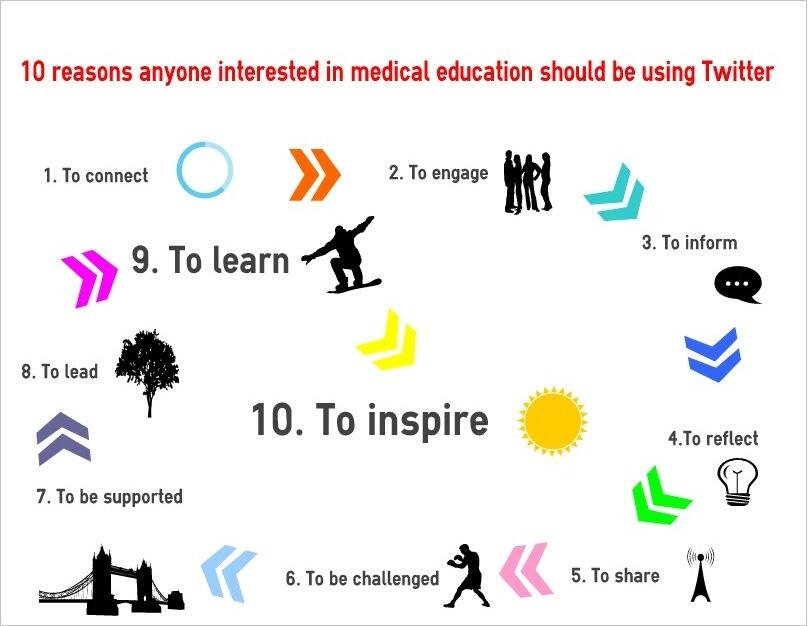Rheum Blog returns
I thought I would resurrect my blog post with some useful
information that I've come across over the last few weeks. This is mainly come
about as I've have started actively using Twitter (follow me @drhectorchinoy, btw Prof Bruce is still ahead of me with followers (@Lupusdoc)!.
I know that there are a few of you skeptical about use of social media and what possible use Twitter could have in terms of clinical medicine and academia. I must say that I otherwise would not have come across some vital information pertaining to updates at the recent ACR conference (eg Biologics or Triple Therapy? The Great Debate at #ACR13), posts about recent advance access publications, articles in the national press relevant to medicine, opinions from key leaders in the field, and useful apps that can make our lives a lot easier when collecting together information. The list goes on and I hope you provide you with a few examples of what I've picked up over the the coming weeks.
Picture courtesy of @KangarooBeach
I know that there are a few of you skeptical about use of social media and what possible use Twitter could have in terms of clinical medicine and academia. I must say that I otherwise would not have come across some vital information pertaining to updates at the recent ACR conference (eg Biologics or Triple Therapy? The Great Debate at #ACR13), posts about recent advance access publications, articles in the national press relevant to medicine, opinions from key leaders in the field, and useful apps that can make our lives a lot easier when collecting together information. The list goes on and I hope you provide you with a few examples of what I've picked up over the the coming weeks.
Referencing software
I've encountered a great piece of free referencing software that would be invaluable for our MSc students. Thank you to Dr Chetan Narshi @Rheumi_ for pointing me in the direction of this. Previously, The University of Manchester has some gone along with either Reference Manager or EndNote – the problem I've encountered with RefMan is that the software costs money for my students outside the university and I have encountered issues when I'm trying to access my lists of references remotely from outside computers – I simply can't do this. Mendeley gets over these problems. It is free to use you can download it to your PC tablet phone etc, and it is web-based. This link provides a useful comparison to other referencing software. You can store 2 GB of data which is more than enough to be getting on with. One of the features that I really like it you can drag-and-drop PDFs into the app and it will effectively turn into a reference for you. Like Reference Manager and EndNote, there is a plug-in that you can use in Word to start creating reference lists.
I've encountered a great piece of free referencing software that would be invaluable for our MSc students. Thank you to Dr Chetan Narshi @Rheumi_ for pointing me in the direction of this. Previously, The University of Manchester has some gone along with either Reference Manager or EndNote – the problem I've encountered with RefMan is that the software costs money for my students outside the university and I have encountered issues when I'm trying to access my lists of references remotely from outside computers – I simply can't do this. Mendeley gets over these problems. It is free to use you can download it to your PC tablet phone etc, and it is web-based. This link provides a useful comparison to other referencing software. You can store 2 GB of data which is more than enough to be getting on with. One of the features that I really like it you can drag-and-drop PDFs into the app and it will effectively turn into a reference for you. Like Reference Manager and EndNote, there is a plug-in that you can use in Word to start creating reference lists.
PubMed Commons
An astonishing development in open access is PubMed Commons. This is really quite groundbreaking – we are all familiar with using
PubMed for looking up sources of evidence and research and that up until now
we've not been able to comment openly about published data. There is no
facility, albeit on a pilot basis for signed up members of department to
comment on their own or, other peoples' manuscripts, and also invite authors of
manuscripts to comment on their publications. You can read about how things
took off in this excellent article by @hildabast.
Ok, promise to post again sooner than the gap from the last post! I'll leave you with this.
Ok, promise to post again sooner than the gap from the last post! I'll leave you with this.
Image courtesy of Maria Popova, click name for full posting


No comments:
Post a Comment